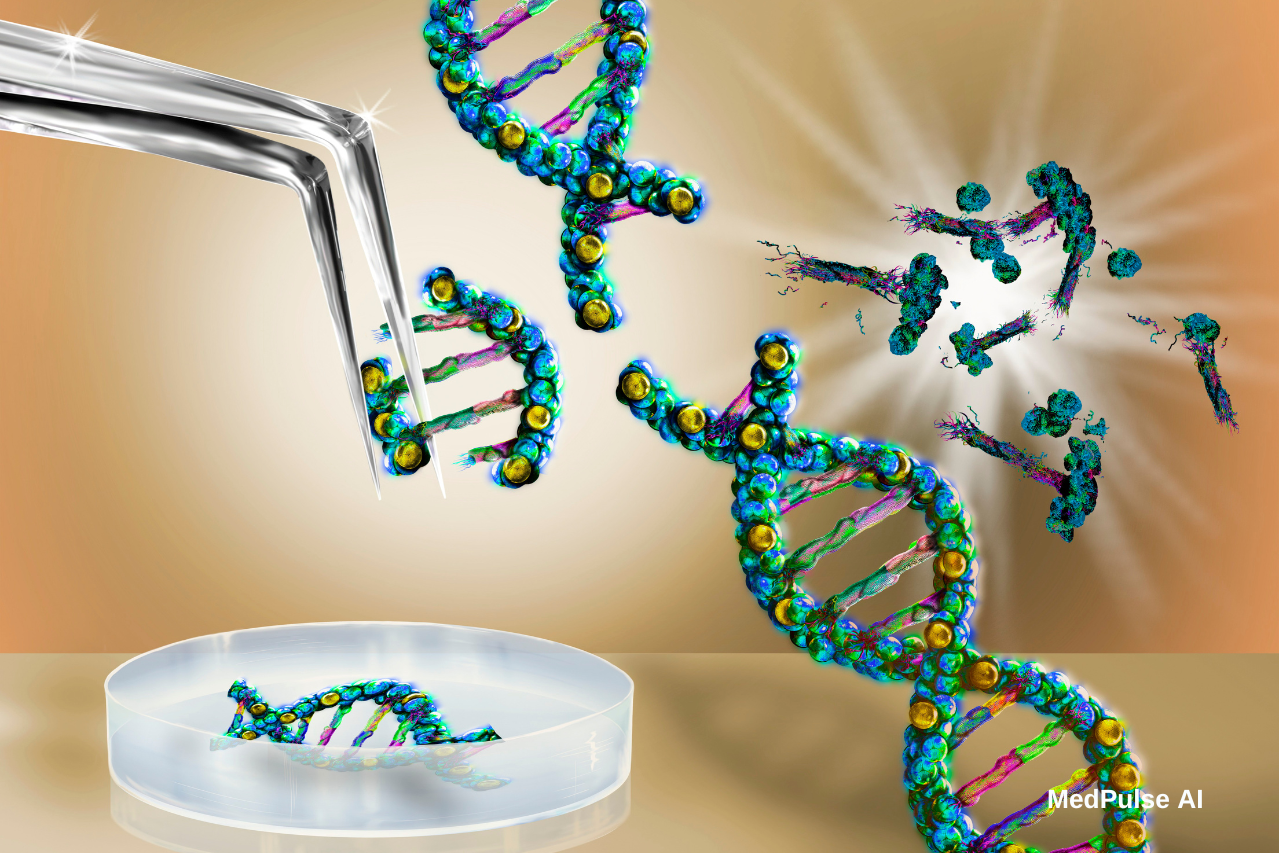The growing accessibility of genetic data has revolutionized personalized healthcare, offering unprecedented opportunities to tailor treatments and improve outcomes. Yet, this progress raises a critical question: could the very tools designed to enhance care also lead to increased genetic discrimination?
Question from our readers: Could Rising Access to Genetic Data Lead to Increased Genetic Discrimination?
The demand for personalized healthcare is skyrocketing, and by 2025, it is projected to become one of the fastest-growing sectors in medicine. Personalized care, which tailors medical treatments to an individual’s unique genetic makeup, lifestyle, and environment, holds immense promise for improving outcomes and reducing healthcare inefficiencies.
With advances in genomic technologies, patients can receive targeted treatments for conditions ranging from cancer to rare genetic disorders, revolutionizing the way care is delivered. However, this advancement also raises concerns about the potential for genetic discrimination, where individuals may face unfair treatment based on their genetic information.
What is Genetic Discrimination?
Genetic discrimination occurs when individuals are treated differently based on their genetic predisposition to certain diseases or conditions. This can manifest in various forms, including denial of insurance coverage, employment opportunities, or other societal benefits due to their genetic profile. This concern is particularly relevant as genetic data becomes more integrated into health systems and shared across various platforms.
- Employment: Employers might avoid hiring or promoting individuals with genetic markers for conditions that could lead to increased sick leave or reduced productivity.
- Insurance: Insurers might deny coverage or raise premiums for individuals with a higher likelihood of developing costly illnesses.
- Social Dynamics: Stigmatization or exclusion could occur if genetic information becomes a factor in personal or professional relationships.
Could Genetic Discrimination Increase with More Accessible Data?
Yes, there is a risk, but its extent depends on how society manages and protects genetic information. Key concerns include:
- Insurance and Financial Risks
In the U.S., the Genetic Information Nondiscrimination Act (GINA) prohibits genetic discrimination in health insurance and employment. However, GINA does not cover life, disability, or long-term care insurance. As genetic testing becomes more widespread, individuals might face challenges securing these types of coverage. - Employment Challenges
Without strong legal safeguards, employers could misuse genetic data to avoid hiring individuals with genetic risks, especially for roles requiring high physical or mental stamina. - Data Privacy and Security
The rapid proliferation of genetic data increases the potential for breaches or unauthorized access. If genetic information is mishandled, it could fall into the wrong hands, leading to discriminatory practices. - Bias in Healthcare Systems
Integrating genetic data into healthcare systems might inadvertently reinforce biases. For instance, certain genetic markers may be more common in specific ethnic groups, leading to inequitable treatment recommendations or stigmatization.
Existing National and Regional Safeguards
Currently, global safeguards against genetic discrimination are limited and vary widely across countries. While some nations and regions have implemented legislation to address genetic discrimination, there is no universal framework to regulate or prevent it on a global scale.
- United States: Genetic Information Nondiscrimination Act (GINA)
- Enacted in 2008, GINA prohibits genetic discrimination in health insurance and employment.
- Limitations: GINA does not cover life insurance, disability insurance, or long-term care insurance, leaving gaps in protection.
- European Union: General Data Protection Regulation (GDPR)
- GDPR provides robust protections for personal data, including genetic data, requiring explicit consent for its collection and use.
- It restricts the processing of genetic data unless it is for medical, scientific, or public interest purposes.
- Limitations: GDPR focuses on data privacy but does not directly address genetic discrimination in employment or insurance.
- Canada: Genetic Non-Discrimination Act (GNA)
- Prohibits requiring genetic testing or disclosure of genetic test results for providing goods, services, or entering contracts, including insurance.
- Protects individuals from genetic discrimination in the workplace.
- Australia: Genetic Privacy and Non-Discrimination Protections
- Anti-discrimination laws, such as the Disability Discrimination Act, offer some protection against genetic discrimination.
- However, the insurance industry can use genetic information in underwriting policies, subject to strict conditions.
- Brazil and South Africa
- Both countries have constitutional provisions and laws that provide some level of protection against discrimination based on health or genetic conditions. However, enforcement and scope vary.
International Safeguards and Agreements
- Universal Declaration on the Human Genome and Human Rights (UNESCO, 1997): This declaration states that genetic data should not lead to discrimination or stigmatization. It encourages nations to develop legal frameworks but lacks binding enforcement mechanisms.
- Council of Europe’s Oviedo Convention (1997): A legally binding treaty addressing human rights in biomedicine, including the misuse of genetic data. Only applies to signatory countries and has limited adoption globally.
- WHO Guidelines: The World Health Organization promotes the ethical use of genetic technologies and data. However, these are advisory and do not have regulatory power.
Gaps in Global Safeguards
- Lack of Universal Coverage
No global treaty or agreement uniformly regulates genetic discrimination across nations. Protections depend on local laws, which vary significantly in scope and enforcement. - Insurance Industry Loopholes
Many existing laws, even in developed nations, allow the use of genetic information in underwriting life, disability, or long-term care insurance, perpetuating potential discrimination. - Employment Gaps
In many countries, employers can legally consider genetic predispositions in hiring or promotion decisions if they argue it impacts job performance or safety. - Data Privacy Challenges
Despite laws like GDPR, breaches of genetic data remain a concern. Unauthorized access to genetic data increases the risk of misuse.
While national and regional safeguards exist, the lack of a unified global framework leaves individuals vulnerable to genetic discrimination in various contexts. Addressing this issue requires international collaboration to harmonize laws, strengthen privacy protections, and create robust enforcement mechanisms.
The Role of AI in Mitigating Genetic Discrimination Risks
Securing Genetic Data Through Advanced Encryption: AI plays a pivotal role in enhancing the security of genetic data through the use of advanced encryption techniques. Dynamic encryption models, powered by AI, can adapt encryption protocols in real-time to address emerging cybersecurity threats, ensuring that genetic data remains secure and inaccessible to unauthorized parties. Additionally, machine learning models can monitor genetic databases for unusual access patterns, detecting and flagging potential breaches or misuse at an early stage. This dual approach not only safeguards sensitive genetic information but also helps build trust among individuals sharing their genetic data.
Anonymization of Genetic Data: AI algorithms offer powerful tools for anonymizing genetic data, removing identifiable information such as names or birthdates to ensure privacy. This anonymization process makes it impossible to trace the data back to specific individuals, significantly reducing the risk of misuse or exploitation. At the same time, anonymized data retains its utility for researchers and clinicians, enabling critical studies and the development of personalized treatments without compromising individual privacy. This balance between usability and security is essential for the ethical advancement of genetic research and personalized care.
Bias Detection in Genetic Data Utilization: AI systems can be instrumental in identifying and addressing bias in the use of genetic data. In the insurance industry, for example, AI can analyze patterns to determine whether insurers disproportionately deny coverage or increase premiums for individuals with certain genetic markers. Similarly, in the workplace, AI algorithms can uncover discriminatory hiring or promotion practices linked to genetic predispositions. By flagging such inequities, AI not only highlights areas for corrective action but also promotes fairness in how genetic information is used, ensuring that its benefits are distributed equitably across society.
AI in Regulatory Compliance and Ethical Oversight
1. Monitoring Adherence to Laws
AI can automate the monitoring of compliance with regulations like the U.S. Genetic Information Nondiscrimination Act (GINA). For instance:
- AI tools can review insurer or employer decisions to ensure they do not factor in prohibited genetic information.
- Regulatory bodies can use AI to audit large datasets, ensuring genetic data usage aligns with established laws.
2. Establishing Ethical Standards
AI can play a crucial role in creating and enforcing ethical standards for handling genetic data:
- Transparent Algorithms: AI models used in genetic testing and data processing should be explainable, ensuring stakeholders understand how decisions are made.
- Ethical Auditing Tools: AI can be programmed to assess whether organizations adhere to ethical guidelines for genetic data use, flagging potential violations for further investigation.
Proactive Use of AI to Educate and Empower Patients
AI can also be employed to educate patients about their genetic information and rights, empowering them to make informed decisions:
- Personalized Data Protection Insights: AI-driven tools can help individuals understand how their genetic data is stored and shared, offering recommendations for enhancing personal data security.
- Virtual Assistants for Rights Awareness: AI-powered chatbots can educate patients about laws and protections related to genetic discrimination, guiding them on how to address violations.
While the risk of genetic discrimination is real, it is not an inevitable outcome. The key lies in proactive regulation, robust data privacy measures, and a commitment to ethical practices. As personalized care continues to expand, society must ensure genetic data serves as a tool for health empowerment, not a means for exclusion or prejudice.
By addressing these challenges head-on, we can create a future where the benefits of genetic advancements are accessible to all—without fear of discrimination.
Your curiosity drives this series, and we’re committed to providing clear, thoughtful answers to your most pressing questions about AI in healthcare. If you have a question you’d like us to address, we invite you to reach out at info@medpulseai.com. We’d love to hear from you and include your queries in future installments.
Join us next time as we continue to explore how AI is shaping the future of medicine, one question at a time. Together, we can make sense of these groundbreaking innovations and their potential to improve healthcare for everyone.






